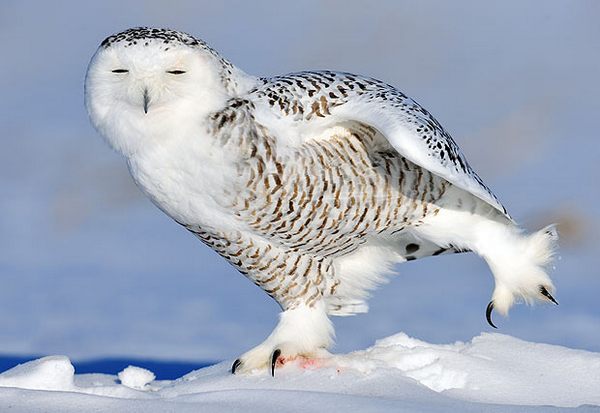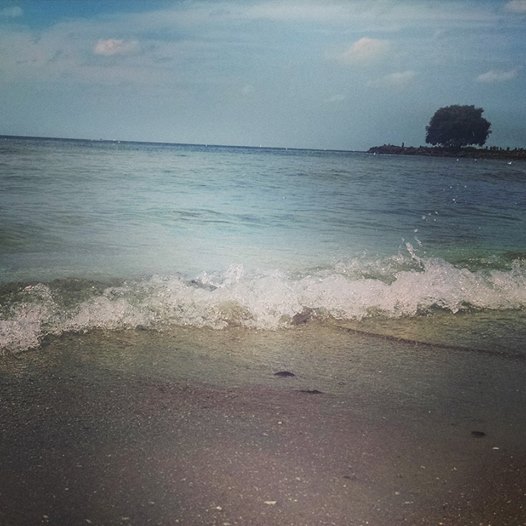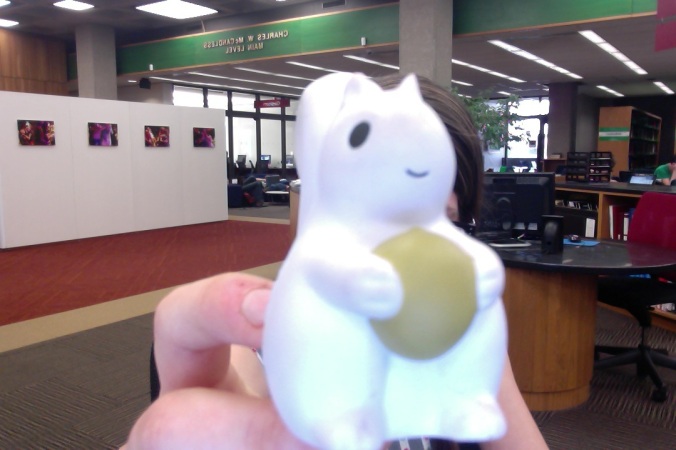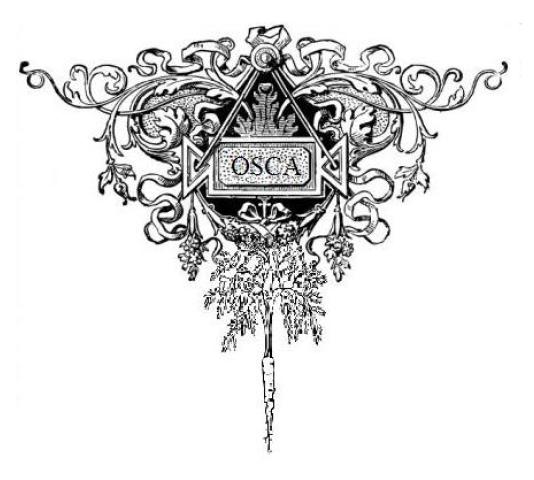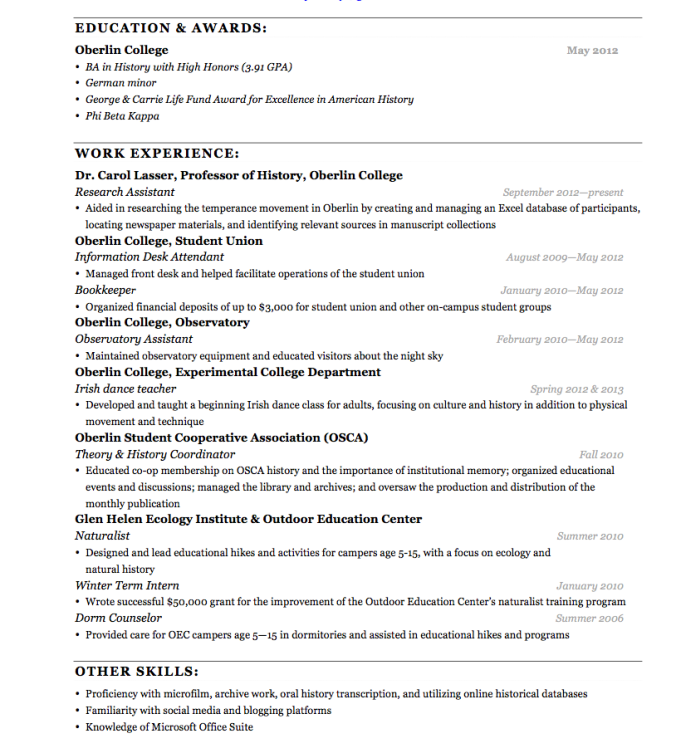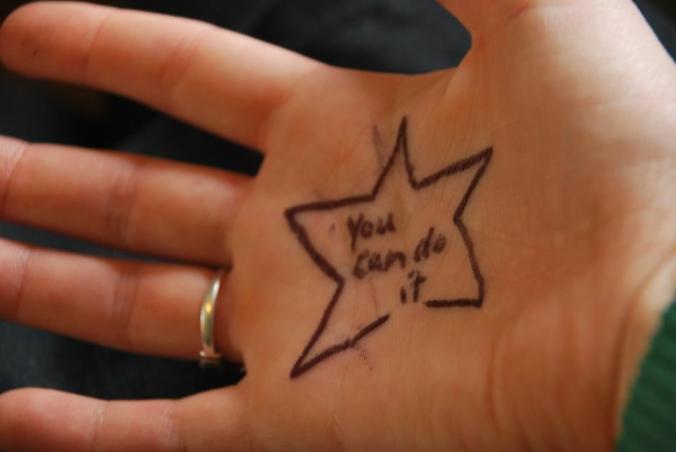I have been quiet recently because the events of this world have made me fearful. I’m not the type of person who screams when they are afraid. Once, when I was little, and I was afraid of being sick, I told dad that he would know to get mom to help me in the bathroom when I screamed, but all I could manage was a small whimper before I threw up all over the bed. Once, while camping, I saw a spider the size of my hand on the wall by my sleeping bag–literally, in front of my nose–and I didn’t scream or run or even flinch. I closed my eyes and repeated over and over in my head, “There is no spider. There is no spider. There is no spider. There is no spider…”
When I am scared, I grow quiet. I close my eyes, cover my ears, curl up into a ball, and do my best to disappear. It’s comforting to feel invisible in the darkness, to feel removed from the danger. These days, I can wrap myself in the warm security of my upbringing (of my skin color) and I can hide for weeks.
It’s surprising how easy this is.
Growing up sheltered in the suburbs was a blessing and a curse. On the one hand, it is possible that I didn’t see color as a child. I knew my best friends were Indian, but that wasn’t the point, because we were all just horses or tigers on the playground. I was open to everyone, and I loved the new cultures my friends’ families invited me to learn. Racism didn’t exist in my world. It wasn’t something I brought to the table, but it doesn’t mean it wasn’t already there. What is magical in children is less so in adults, and I learned this the hard way. I wasn’t just blind to color. I was blind to everything.
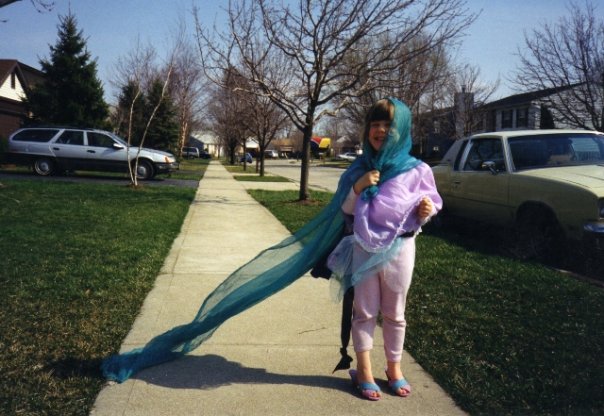
Derogatory terms were so far off my radar that I didn’t even know they existed in the 21st century. I had never heard them on T.V. and I had never heard my family use them, not once. We read Huckleberry Finn, but I had never heard the word spoken aloud, and so I thought that’s just what it was–something you read but you never, ever say, the relic of a very distant past. I remember in college, I heard someone talking about a person I knew and they called her a J.A.P. It was the only term I’d heard before, thanks to watching a lot of corny WWII movies. I remember leaning over to my friend and whispering, confused, “But…she’s not Japanese.” My friend just looked at me and frowned. “That’s not funny, Jen.”
I realized much later that the comment had had nothing to do with being Japanese. In my ignorance, I had missed an opportunity to defend someone I cared about. How many times, I wonder, had I missed that opportunity growing up? Had any of my friends tried to talk to me about what it was like being a different color, practicing a different religion? We talked about books and movies and boys and ice cream. We frolicked like champs and did science experiments together. Maybe I missed something then, too.
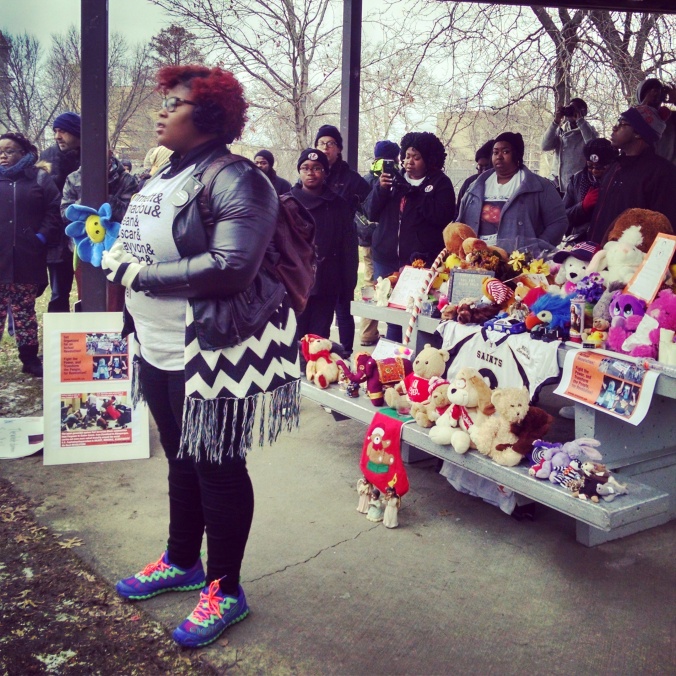
When I was in high school, I remember hating poetry. The first poem analysis I completed my senior year was titled “NO,” and I basically failed. My gracious English teacher gave me a second chance, even after I tried giving up poetry for Lent, and I ended up doing okay, but I didn’t like it for one minute. I couldn’t connect with the medium at any level, and I refused to try because I didn’t like it. The best description for this literary Catch-22 I have ever heard comes from a scene in The History Boys. As the teacher announces it’s time to read some poetry, one of the students groans and falls forward dramatically onto his desk. “Sir, I don’t always understand poetry,” he admits. “I don’t see how we can understand it. Most of the stuff poetry’s about hasn’t happened to us yet.”
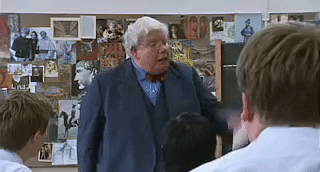
The pain and suffering, all the life and love of poetry, wasn’t accessible to me at that moment. I was soft. My worldview was small and myopic. I didn’t possess the tools to understand and I wasn’t able to step out and realize that how I experienced the world could be so wholly different from someone else.
This entry is me eating crow.
I’m older now, and trying to be wiser. Despite the temptation to shut my eyes and plug my ears, to burrow deep into my privilege like a cicada into the earth, I have tried to remain present. I am reading what articles I can. I am listening to people grieve. My mind is opening further than I ever thought possible, and, as time goes on, the events of the world cut closer and closer to the core of my existence (the security of my white skin). The more connected I allow myself to be to the world around me, the more personal these news stories become…
A twelve-year-old boy from my city, who attended a school that sends kids to my museum, was shot and killed in less than two seconds.
Another woman is raped on a college campus and her rapist is pitied.
Men and women who look and love like some of my best friends are gunned down without apology while they were carefree and dancing.
My friends, some of the kindest people I know, are scorned and forced to answer for senseless acts of violence they had no hand in committing.
Still more friends are waking up to learn that their homelands have been bombed beyond recognition and must come to terms with the fact that most people would rather look away.
Still more friends are waking up almost daily in their own country to pictures of violence and murder perpetrated by law enforcement against people that look like them, and have to live with the realization that their lives still count for less, even in this nation of freedom.
The more I live, the more I come to appreciate the power of poetry. This world is a broken and a terrifying place, but poets are craftsmen, magicians. With an idea as pure and simple as light and a scant few lines, poets take all that pain and suffering and transform it into a thing of beauty. The meek and mourning find their souls’ grief articulated so perfectly in so few words. It’s as if the poet were holding you in their arms and rocking you gently back and forth, whispering gently, “Me, too.”
A tiny flower grows from a mountain of crap.
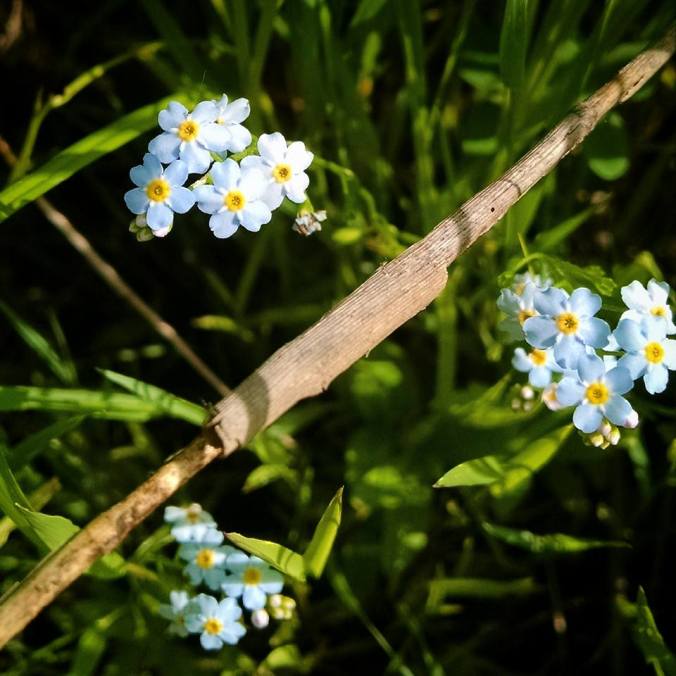
The events of the past few months have shaken me, and, again, I have retreated into silence, but this time it is different. I have been silent, but I have also been listening. I may not have the words to articulate how I am feeling (she says 1000+ words later), but I thought I would share three poems that have recently brought me to tears. Read them slowly, perhaps quietly in the dark, alone, and reflect. Open your mind to the fact that violence against anyone is wrong, but that it occurs disproportionately across the world to people who may be different from you. Allow those ideas to enter your heart and to course through your veins. Open your eyes and lean in.
Allowables
I killed a spider
Not a murderous brown recluse
Not even a black widow
And if the truth were told this
Was only a small spider
Who should have run
When I picked up the book
But she didn’t
And she scared me
And I smashed her.
I don’t think
I’m allowed
To kill something
Because I am
Frightened.
– Nikki Giovanni
A Small Needful Fact
is that Eric Garner worked
for some time for the Parks and Rec
Horticultural Department, which means,
perhaps, with his very large hands,
perhaps, in all likelihood,
he put gently into the earth
some plants which, most likely,
some of them, in all likelihood,
continue to grow, continue
to do what such plants do, like house
and feed small and necessary creatures,
like being pleasant to touch and smell,
like converting sunlight
into food, like making it easier
for us to breathe.
– Ross Gay
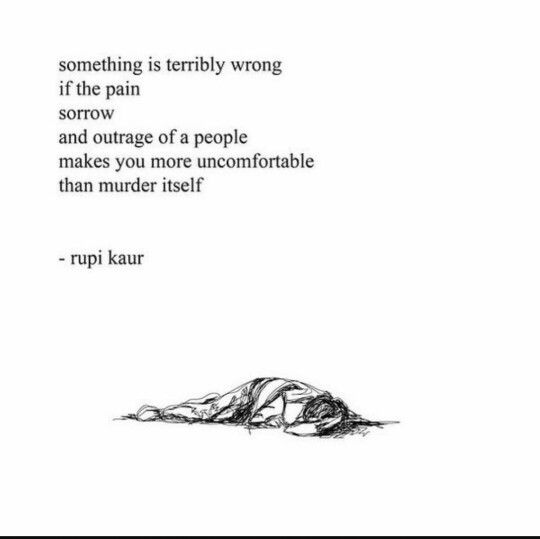
It goes without saying that our world needs peace and compassion and understanding. Our country–the cities we live in and were raised in–needs people to be brave and to hold out their hands to their neighbors. Poetry may not be the answer, but it does make me more optimistic that the answer is out there. I don’t know what to do. I don’t know how to continue. But I feel stronger knowing someone out there has the words to plant that flower in this giant mountain of crap.
